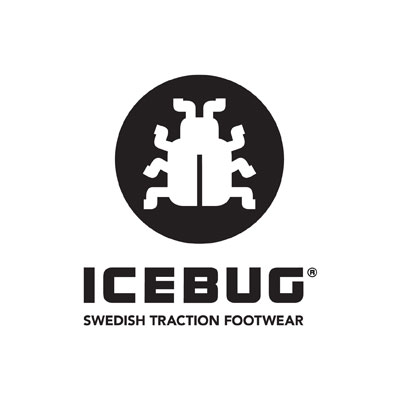

Icebug AB

Västra Götaland, Sweden
October 2022
Apparel
Wholesale/Retail
Austria,
Germany,
Norway,
Sweden,
United States
Icebug is a Swedish footwear company founded in 2001 on the idea of making better shoes for people that want to get outdoors every day. World leading traction technologies empowers people to get out and enjoy even in the most slippery conditions: Ice, snow, wet rocks and mud. Icebug offers shoes for all activities. Made to be durable and designed for longevity, with minimal resource use. Icebug’s vision is to be a changemaker for a society where people can thrive on a planet in balance. The commitment is to do the right thing, even when it hurts. Icebug does not have a sales growth target and Nature and Society are prioritized stakeholders. Icebug is a member of 1% for the planet. Icebug has set out to change the footwear industry through sharing scalable solutions. The brand offers radical transparency on climate footprint and is committed to halve emissions by 2030.
Overall B Impact Score
Governance 10.1
Governance evaluates a company's overall mission, engagement around its social/environmental impact, ethics, and transparency. This section also evaluates the ability of a company to protect their mission and formally consider stakeholders in decision making through their corporate structure (e.g. benefit corporation) or corporate governing documents.
What is this? A company with an Impact Business Model is intentionally designed to create a specific positive outcome for one of its stakeholders - such as workers, community, environment, or customers.
Workers 28.5
Workers evaluates a company’s contributions to its employees’ financial security, health & safety, wellness, career development, and engagement & satisfaction. In addition, this section recognizes business models designed to benefit workers, such as companies that are at least 40% owned by non-executive employees and those that have workforce development programs to support individuals with barriers to employment.
Community 18.7
Community evaluates a company’s engagement with and impact on the communities in which it operates, hires from, and sources from. Topics include diversity, equity & inclusion, economic impact, civic engagement, charitable giving, and supply chain management. In addition, this section recognizes business models that are designed to address specific community-oriented problems, such as poverty alleviation through fair trade sourcing or distribution via microenterprises, producer cooperative models, locally focused economic development, and formal charitable giving commitments.
Environment 31.5
Environment evaluates a company’s overall environmental management practices as well as its impact on the air, climate, water, land, and biodiversity. This includes the direct impact of a company’s operations and, when applicable its supply chain and distribution channels. This section also recognizes companies with environmentally innovative production processes and those that sell products or services that have a positive environmental impact. Some examples might include products and services that create renewable energy, reduce consumption or waste, conserve land or wildlife, provide less toxic alternatives to the market, or educate people about environmental problems.
What is this? A company with an Impact Business Model is intentionally designed to create a specific positive outcome for one of its stakeholders - such as workers, community, environment, or customers.
Customers 5.0
Customers evaluates a company’s stewardship of its customers through the quality of its products and services, ethical marketing, data privacy and security, and feedback channels. In addition, this section recognizes products or services that are designed to address a particular social problem for or through its customers, such as health or educational products, arts & media products, serving underserved customers/clients, and services that improve the social impact of other businesses or organizations.